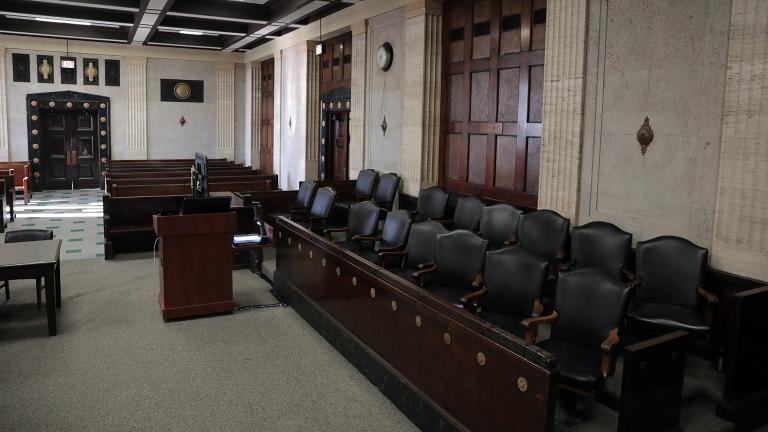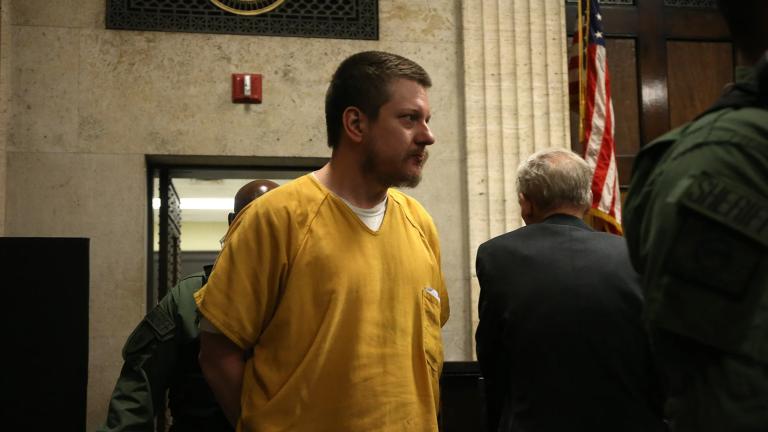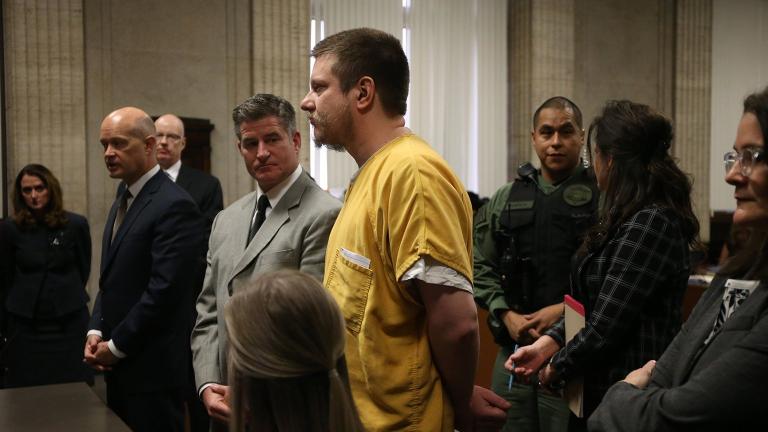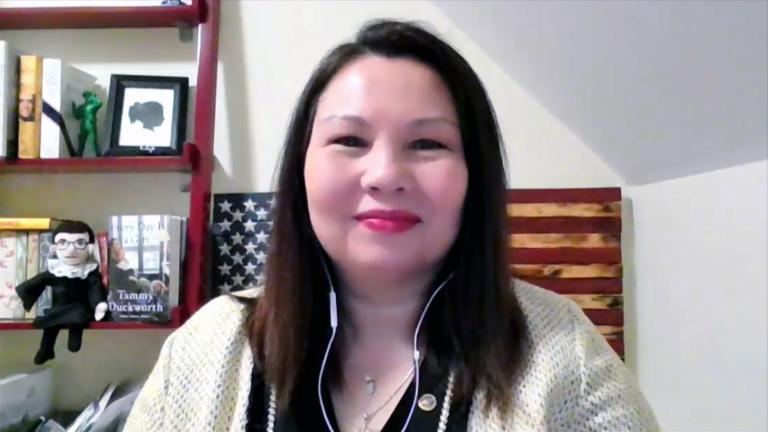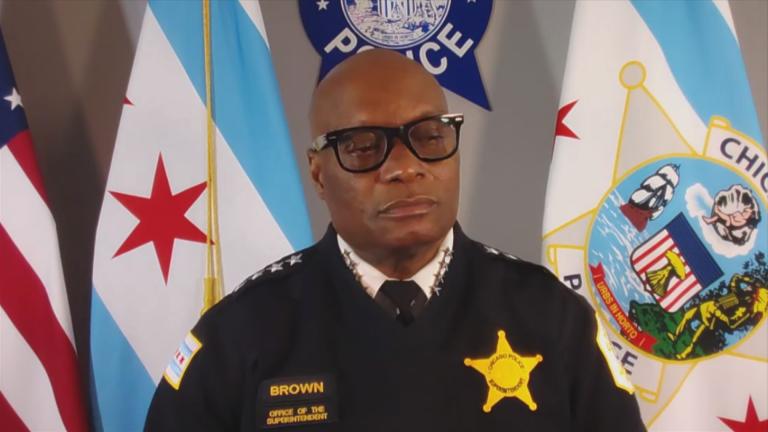Prosecutor Joe McMahon at the sentencing hearing of former Chicago police Officer Jason Van Dyke at the Leighton Criminal Court Building on Friday, Jan. 18, 2019 in Chicago. (Antonio Perez / Chicago Tribune / Pool)
The last remnants of a gag order that barred the public release of several documents and motions from the Jason Van Dyke murder trial have been removed, more than six months after the former Chicago police officer was sentenced for the 2014 killing of teen Laquan McDonald.
Cook County Judge Vincent Gaughan on Wednesday granted a motion from Joseph McMahon, the special prosecutor who handled Van Dyke’s historic trial, seeking the release of the final cache of documents from the case that have not yet been made public.
“Here, the ongoing existence of the Decorum Order only acts to protect 18 items that can be adequately protected by minimal redactions,” McMahon wrote in his four-page motion filed Wednesday. “No further benefit inures to the People in their prosecution of Jason Van Dyke by the continued existence of the Decorum Order.”
Last fall, Van Dyke became the first Chicago police officer convicted of murder for an on-duty shooting in some 50 years when a Cook County jury found him guilty of second-degree murder and 16 counts of aggravated battery with a firearm.
Gaughan first implemented the decorum order in the landmark case back in January 2016, about two months after Van Dyke was charged with first-degree murder, modeling it after a similar order he issued in the 2008 child pornography trial of R&B star R. Kelly.
The order kept both prosecutors and Van Dyke’s defense team from commenting publicly on the case during the lengthy pretrial proceedings and the trial itself last year. It also required motions and filings to be made under seal in Gaughan’s chambers rather than with the Cook County Clerk.
But little by little that order dwindled in scope, even before Wednesday’s ruling.
The Illinois Supreme Court last year struck down the portion that kept motions from being filed in the clerk’s office. In April, Gaughan and the trial attorneys agreed to make public 87 of the 108 sealed documents that had been sought by attorneys representing a handful of local media outlets.
A month later, those same media attorneys withdrew a request for three of those remaining 21 documents, leaving just 18 under seal. McMahon now says those files have been sufficiently redacted to “protect the People’s interest.”
Those documents will eventually be available through the clerk’s office.
Gaughan’s ruling could also help pave the way for the city of Chicago to publish Inspector General Joseph Ferguson’s report on McDonald’s murder, which recommended the firing of 11 officers. The report has been kept from the public despite Ferguson’s own pleas for its release.
Van Dyke is currently serving his 81-month sentence at a federal prison in Otisville, New York. He is expected to serve about half that time and is currently scheduled for release Feb. 8, 2022.
Contact Matt Masterson: @ByMattMasterson | [email protected] | (773) 509-5431
Related stories:
Van Dyke Case: State Supreme Court Orders Case Filings Be Made in Public
Jason Van Dyke Found Guilty of Second-Degree Murder
Prosecutors Say Police ‘Violated Public Trust’ in Alleged McDonald Cover-Up
Prosecutors Seek Witness Immunity as McDonald Conspiracy Case Heads to Trial

